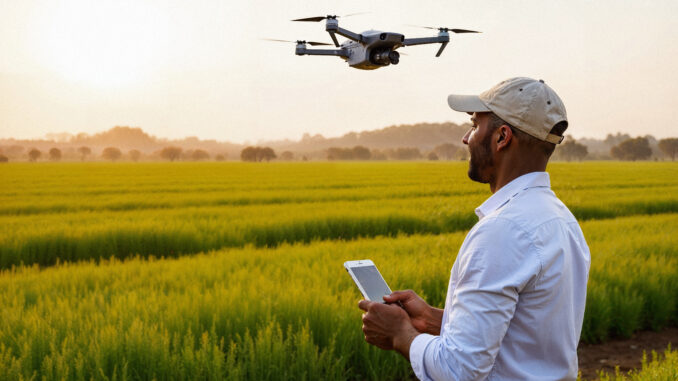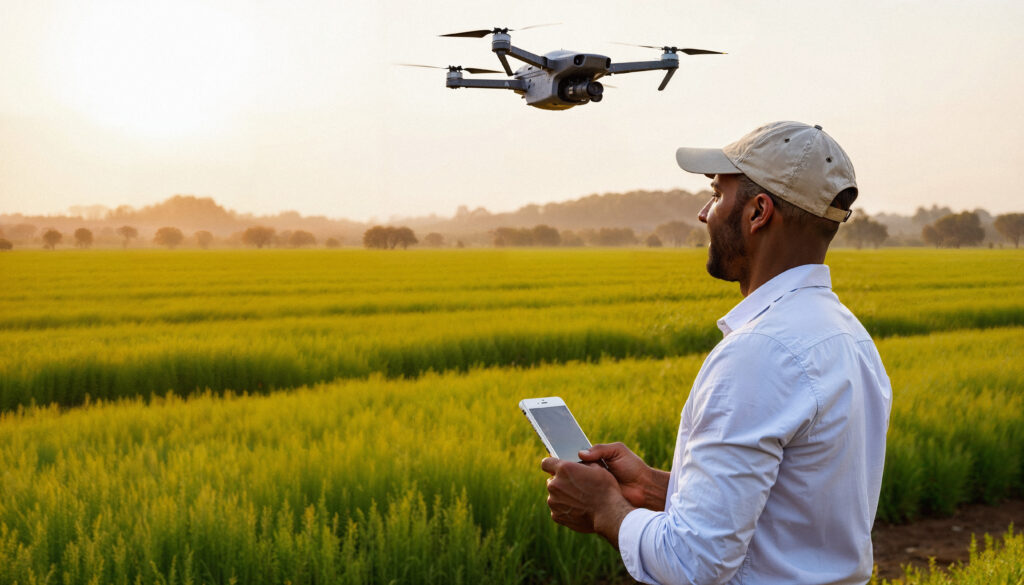

The evolution of agriculture into the digital age is transforming traditional farming practices, offering innovative solutions to age-old challenges. Central to this transformation are artificial intelligence (AI) and machine learning (ML), which are revolutionizing crop management by enabling more precise, efficient, and sustainable farming practices.
AI and ML technologies facilitate real-time monitoring of crop health, soil conditions, and environmental factors. Through the deployment of sensors, drones, and satellite imagery, farmers can gather vast amounts of data about their fields. AI algorithms analyze this data to detect patterns and anomalies, providing insights into pest infestations, disease outbreaks, and nutrient deficiencies well before they become severe. This proactive approach allows farmers to address issues swiftly, reducing crop losses and minimizing the use of chemicals.
AI-driven predictive models assist in optimizing irrigation and fertilization schedules. By considering weather forecasts, soil moisture levels, and crop growth stages, these systems can determine the precise amount of water and nutrients required for each section of a field. This targeted approach not only conserves resources but also enhances crop yields and quality. Machine learning models continuously improve their accuracy over time by learning from new data, making recommendations increasingly precise and reliable.
Crop management also benefits from AI-powered decision support systems that help farmers plan planting and harvesting activities. These systems integrate various data sources to forecast the best planting windows, assess potential risks, and suggest efficient harvesting times. Such insights enable farmers to maximize productivity while minimizing waste and labor costs.
AI contributes to sustainable agriculture by promoting environmentally friendly practices. By reducing the overapplication of fertilizers and pesticides, AI helps lower the environmental footprint of farming. It also supports precision farming, which aligns input usage with actual crop needs, thereby safeguarding soil health and reducing runoff into water bodies.
Despite these advancements, challenges remain in integrating AI and ML into broader agricultural systems. Issues such as data privacy, limited access to technology in rural areas, and the need for specialized knowledge can hinder widespread adoption. Addressing these barriers requires collaborative efforts among governments, technology providers, and farming communities to ensure equitable access and effective implementation.
AI and machine learning are pivotal in shaping the future of crop management within digital agriculture. By enabling more accurate monitoring, predictive insights, and sustainable practices, these technologies are helping farmers increase productivity, reduce environmental impact, and adapt to the complexities of modern agriculture. As innovations continue to emerge, the integration of AI into farming will play an increasingly vital role in securing food systems for the growing global population.
Leave a Reply